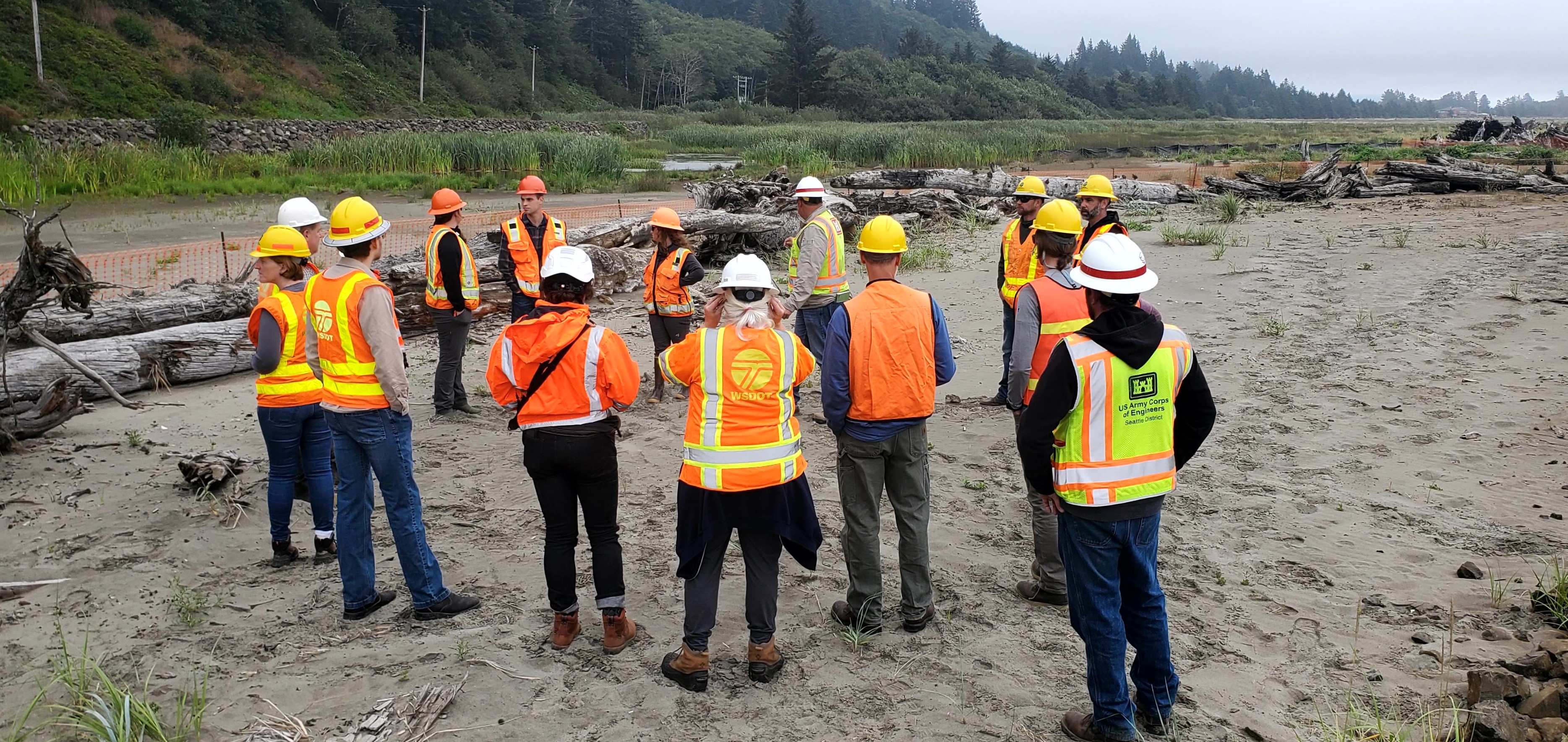
The 3,300 miles of shoreline along Puget Sound and the Pacific Ocean coast help protect Washington’s adjacent lands from floods, improve and maintain water quality, and support critical habitats for many of our iconic species such as salmon and Orca. Our coastal areas also are home to productive agricultural and aquaculture lands, recreational opportunities, and vital residential, commercial, and transportation infrastructure.
However, as sea levels rise and changing rainfall patterns brought by climate change intensify coastal flooding, landslides and bluff erosion, the natural processes sustaining our coastal shorelines are at risk of getting out of balance, requiring collaborative approaches and partnerships to sustain Washington’s coastal landscapes.
Grant award supports innovative partnership
We recently received an $850,000 grant from the National Coastal Resilience Fund, a partnership between the National Oceanic and Atmospheric Administration (NOAA) and the National Fish and Wildlife Foundation. The grant supports an innovative partnership involving Ecology, the Washington departments of Transportation and Fish and Wildlife, and Washington Sea Grant.
The project is aimed at improving the resilience of public infrastructure, habitats, and communities in Washington’s 15 coastal counties to coastal hazards including sea level rise, flooding, erosion, and landslides.
WSDOT to update its climate impacts vulnerability assessment
Coastal roadways are lifelines for communities, businesses, and tourism in Washington, but they’re often located within or adjacent to critical nearshore and estuarine areas that are vulnerable to sea level rise and other hazards. Creating resilient shores for communities and wildlife will require roadways and infrastructure designed for and sited to accommodate the dynamic nature of coastal landscapes and the needs of diverse communities.
The state Department of Transportation (WSDOT) will use nearly $700,000 of the grant to update its 2011 climate impacts vulnerability assessment for all state roadways in Washington’s 15 coastal counties. WSDOT will use new data and tools such as local sea level rise projections to consider roadway vulnerability to coastal and climate hazards.
Prioritizing nature-based resilience projects
As project partners, we'll work with WSDOT, Fish and Wildlife, and Sea Grant to create a collaborative approach for prioritizing innovative, nature-based resilience projects. The project team will work with local partners to identify three to six projects designed to improve community resilience and habitat conditions such as installing climate-smart and fish-friendly bridges and culverts, nature-based hazard protection, and reconnecting floodplains and side channels.
The new National Fish and Wildlife Foundation funding marks a unique opportunity to transform the way state agencies work together to meet resilience challenges by finding common ground, prioritizing multi-benefit, nature-based solutions, and working with communities to define resilience for the future. The funding will also build on recent significant investments by NOAA.
For more information, please contact Ecology's Henry Bell, henry.bell@ecy.wa.gov.

